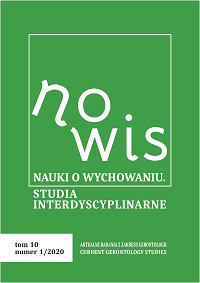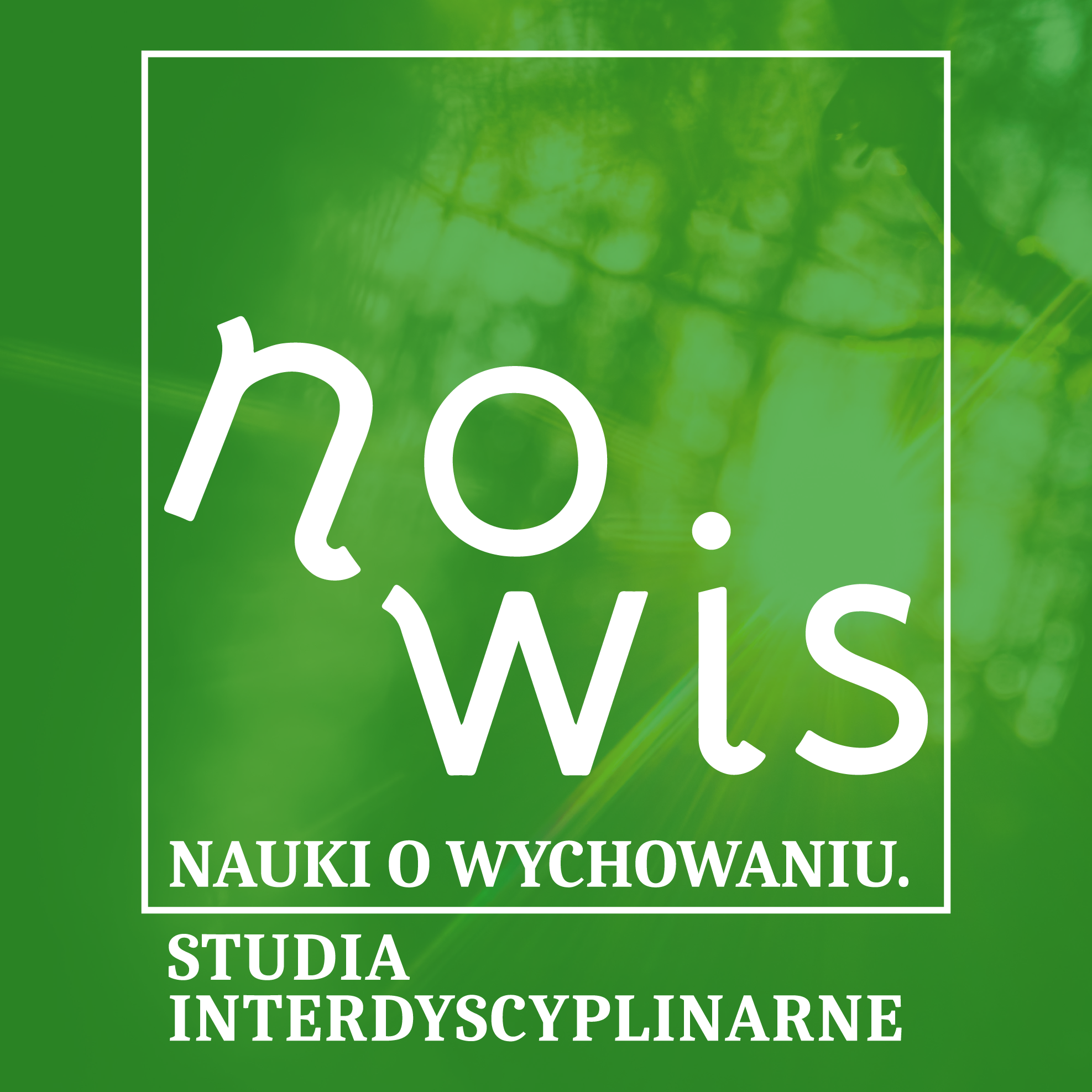Spotkanie w dziecięcej literaturze dotyczącej śmierci – odnajdywanie związków z inkontrologią Andrzeja Nowickiego na przykładzie relacji z najstarszym pokoleniem
DOI:
https://doi.org/10.18778/2450-4491.10.04Słowa kluczowe:
pedagogika, andragogika, tanatopedagogika, inkontrologia, literatura dziecięca, Andrzej Nowicki, spotkanie międzypokolenioweAbstrakt
Poszukując filozofii w literaturze, można ją odnaleźć również i w książkach dla dzieci, szczególnie jeśli dotyczy ona tak poważnych tematów jak śmierć. Autorzy tychże książek, przybliżając filozofię życia oraz sens śmierci, często ukazują je poprzez pryzmat spotkania dziecka i osoby starszej. Co wynika z tych spotkań i jakie inne walory, oprócz kontekstu oswajającego ze śmiercią, można jeszcze odnaleźć w tych literackich spotkaniach? Za punkt odniesienia w pracy została przyjęta filozofia spotkania Andrzeja Nowickiego – inkontrologia.
Bibliografia
Eriksson E., Aakeson K. F. (2006) Esben i duch dziadka, transl. by K. Stręk, Poznań, Media Rodzina.
Google Scholar
Filozofia. Leksykon PWN (2000) Warszawa, Wydawnictwo Naukowe PWN.
Google Scholar
Napora E. (2016) Relacje z dziadkami a subiektywna ocena jakości życia ich wnuków w rodzinach o różnej strukturze, “Polskie Forum Psychologiczne”, XXI, 1: 5–22.
Google Scholar
Nowicki A. (1991) Spotkania w rzeczach, Warszawa, Państwowe Wydawnictwo Naukowe.
Google Scholar
Nowicki A. (1981) Nauczyciele, Lublin, Wydawnictwo Lubelskie.
Google Scholar
Pieńkos M. (2015) Dziadkowie w wychowaniu wnuków na podstawie opinii osób młodych i starszych, “Forum Pedagogiczne”, 2: 279–289.
Google Scholar
DOI: https://doi.org/10.21697/fp.2015.2.10
Piumini R. (2013) Maciuś i dziadek, Kraków, Wydawnictwo Bona.
Google Scholar
Raimondi F. P. (2013) Centralne kategorie myśli Andrzeja Nowickiego, “Sofia”, 13: 345–353.
Google Scholar
Rattan S. (2009) Dokąd odchodzisz, Gdańsk, Wydawnictwo AnWero.
Google Scholar
Siwołowski A. (2014) Moja babcia kochała życie in: Porozmawiajmy o śmierci, B. Antoszewska, J. Binnebesel (eds.), Olsztyn, Wydawnictwo UWM.
Google Scholar
Stanecka Z. (2013) Świat według dziadka, Poznań, Wydawnictwo W Drodze.
Google Scholar
Sztobryn-Bochomulska J. (2018a) Co mówią o życiu książki o śmierci. Analiza wybranej literatury przedmiotu, “Kultura i Wychowanie” 13: 169–183.
Google Scholar
DOI: https://doi.org/10.25312/2083-2923.13/2018_169-183
Sztobryn-Bochomulska J. (2018b) Tanatos w literaturze dziecięcej i jego pedagogiczny wymiar – unpublished doctoral thesis, http://repozytorium.uni.lodz.pl:8080/xmlui/handle/11089/27265
Google Scholar
Wieczorek K. (1990) Dwie filozofie spotkania. Konfrontacja myśli Józefa Tischnera i Andrzeja Nowickiego, Katowice, Wydawnictwo Uniwersytetu Śląskiego.
Google Scholar
Wieczorek K. (2013) Ślad, obecność, piętno imienne. O inkontrologii i ergantropii Andrzeja Nowickiego, “Kultura i Wartości”, 1 (5): 37–53.
Google Scholar
Zarębianka Z. (2016) Filozofia wobec literatury. Literatura wobec filozofii. Warianty wzajemnych odniesień. Rekonesans, Filo-Sofija, 16, 34/1: 142–152.
Google Scholar
Agnosiewicz M., Nowicki A. (2009) Kocham to co jeszcze nie istnieje… Rozmowa z Profesorem Andrzejem Nowickim, http://www.racjonalista.pl/kk.php/s,6559 [accessed: 15.10.2017].
Google Scholar
Pobrania
Opublikowane
Jak cytować
Numer
Dział
Licencja

Utwór dostępny jest na licencji Creative Commons Uznanie autorstwa – Użycie niekomercyjne – Bez utworów zależnych 4.0 Międzynarodowe.





 Strona czasopisma, prowadzona przez Zespół redakcyjny NOWiS na platformie Index Copernicus:
Strona czasopisma, prowadzona przez Zespół redakcyjny NOWiS na platformie Index Copernicus: 





